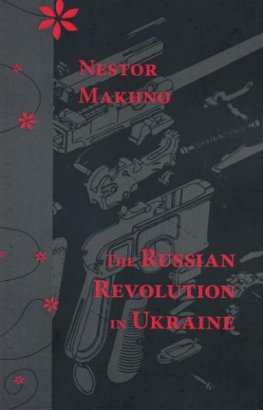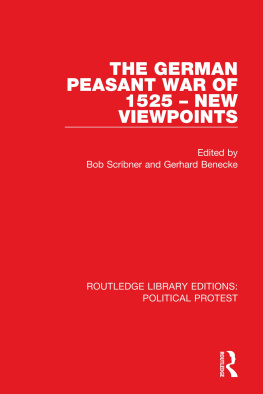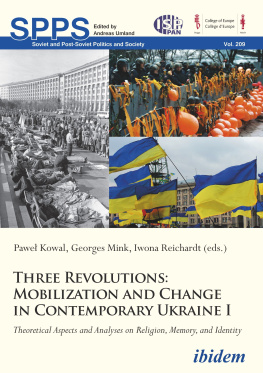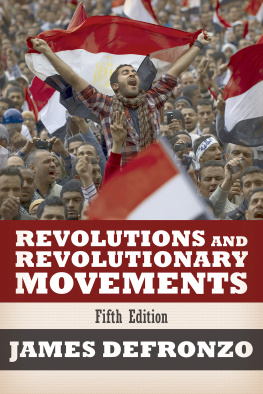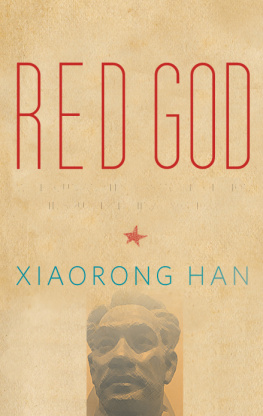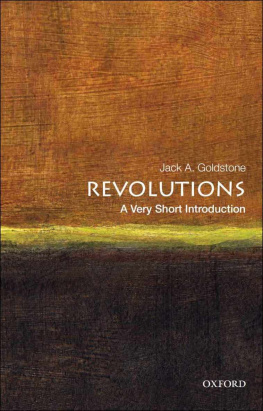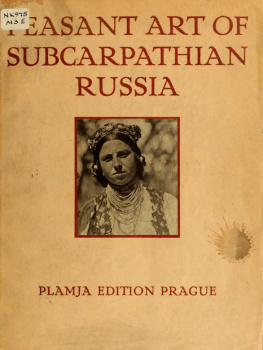By comparing peasant revolutions in Hunan and Jiangxi between 1926 and 1934, Revolutions as Organizational Change offers a new organizational perspective on peasant revolutions. Utilizing newly available historical materials in the Peoples Republic of China in the reform era, it challenges the established view that the great Chinese revolution of the twentieth century was a revolution made by the Chinese Communist Party (the CCP).
The book begins with a puzzle presented by the two peasant revolutions. While outside mobilization by the CCP was largely absent in Hunan, peasant revolutionary behaviors were spontaneous and radical. In Jiangxi, however, despite intense mobilization by the CCP, peasants remained passive and conservative. This study seeks to resolve the puzzle by examining the roles of communal cooperative institutions in the making of peasant revolutions. Historically, peasant communities in many parts of the world were regulated by powerful cooperative institutions to confront environmental challenges. This book argues that different communal organizational principles affect peasants perceptions of the legitimacy of their communal orders. Agrarian rebellions can be caused by peasants attempts to restructure unjust and illegitimate communal organizational orders, while legitimate communal organizational orders can powerfully constrain the mobilization by outside revolutionary agents such as the CCP.
In this thorough comparative account of the peasant risings in Hunan and Jiangxi and the role of the Communist Party, Professor Zhang casts new light on both the risings themselves, and what they can tell us about peasant risings in general. This work is strong in both theory and detailed historical research.
Richard Rigby, professor, China Institute, Australian National University
Professor Zhang has beautifully crafted a comparative study of divergent peasant revolutions in two Chinese regions during Maos long revolutionary war. He brings to this task a broad and deep knowledge about revolutionary theory, and also a razor-like analytical sensibility, which enables him to examine the pros and cons of existing perspectives.
Timothy P. Wickham-Crowley, associate professor of sociology, Georgetown University
Baohui Zhang is professor of political science at Lingnan University, Hong Kong. He received his PhD from the University of Texas in Austin. His research interests include political change, Sino-US relations, and international relations of the Asia Pacific.
Revolutions as Organizational Change
Hong Kong University Press
The University of Hong Kong
Pokfulam Road
Hong Kong
www.hkupress.org
2015 Hong Kong University Press
ISBN 978-988-8208-39-5 (Hardback)
All rights reserved. No portion of this publication may be reproduced or transmitted in any form or by any means, electronic or mechanical, including photocopy, recording, or any information storage or retrieval system, without prior permission in writing from the publisher.
British Library Cataloguing-in-Publication Data
A catalogue record for this book is available from the British Library.
10 9 8 7 6 5 4 3 2 1
Tables
Membership of peasant associations in Hunan
Composition of the Red Fourth Army
Leaders with an upper-class background in Guangchang County
Leaders with an upper-class background in the Lean County Soviet
Peasant composition in Hunan and Jiangxi
Peasant composition in Fujian
Comparison of rent rates in Hunan and Jiangxi
Rent rates in southern Jiangxi
Rent rates in western Fujian
Major exports of Jiangxi in 1904
Paiges typology of agrarian conflicts
Acknowledgments
This book started as my PhD thesis for the Government Department of the University of Texas at Austin. Here I owe a deep debt to my supervisor, the late Gordon Bennett. In fact, it was his graduate seminar on comparative revolutions that triggered my interest in this most fascinating topic for social scientific inquiry. My thesis benefited tremendously from his keen insights and his command of the core literature on revolutions of all shades and types. As an accomplished China specialist, his familiarity with the great Chinese revolution of the twentieth century also helped me sharpen my focus and ask the most pertinent research questions.
I also want to thank the Government Department of the University of Texas at Austin for providing me many years of financial support that enabled me to complete this thesis. For the same reason, I owe a debt to the Sun Yat-sen Education Fund, based in Taiwan, for awarding me a PhD fellowship that assisted with the writing stage of this research project.
I dedicate this book to my late father, Zhang Xilin, who encouraged me to turn my PhD thesis into a book. He would be very happy to see its publication if he were still with us. I also deeply appreciate my familys sacrifice in the past few years. My research and teaching have made my absence at the dinner table regular and frequent. So I want to thank my wife and son for their generous support, which allowed me to devote more time to this book project.
Lastly, I want to thank Christopher Munn, former associate publisher of Hong Kong University Press, for his kind support of this book, without which this publication would not have been possible.
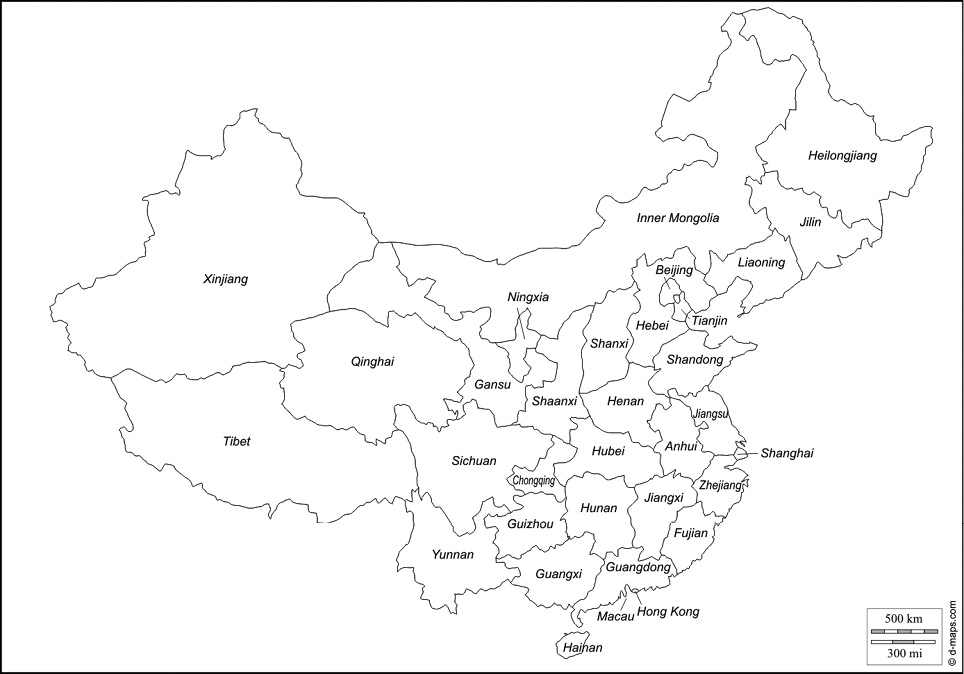
Map of Chinese provinces, http://d-maps.com/carte.php?num_car=17503&lang=en
Introduction
Peasant revolutions in the twentieth century played a major role in shaping the course of world history. Peasants, identified by Marx as a human species facing extinction in the face of rapid industrialization, in fact became one of the primary forces of social change in this century. As Barrington Moore observes, No longer is it possible to take seriously the view that the peasant is an object of history, a dying class over whom progress is about to roll. Instead, various kinds of peasant movements and, particularly, peasant revolutions have transformed the world.
The great Chinese revolution of the twentieth century has been seen as a classic peasant-based revolution. Moreover, it also represents the archetypical revolution that was made by revolutionaries. Traditional interpretations tend to emphasize the key role of the Chinese Communist Partys (CCP) mobilization of the peasant population. As Robert Marks points out, studies of the origins of the Chinese revolution focus almost entirely on Communist organization and mobilization tactics: nearly all interpretations place its origins anywhere but in the rural society because these studies place explaining the Chinese Communist success at the forefront.
However, this perspective overlooks the critical role of peasant communities in the making of revolutions. As Timothy Wickham-Crowley argues in his highly acclaimed study of peasant revolutions in Latin America, The success of revolutionaries in mobilizing the peasantry depends primarily on the preexisting nature of peasant culture and social structure, and only secondly on the actions of the revolutionary themselves.
My research, by employing a macrohistorical comparative strategy, examines how the pre-existing social structures of peasant communities facilitated or impeded the CCP mobilization. Through a study of two important peasant revolutions in southern China, I propose a new organizational approach to examine how the different ways that rural communities organized in response to environmental challenges contributed to agrarian revolutions. Historically, peasant communities in many parts of the world were regulated by powerful cooperative institutions. The purpose of these communal organizations was to organize and coordinate collective actions to confront environmental challenges. I argue that agrarian revolutions can be caused by peasants attempts to restructure unjust and illegitimate communal organizational orders and establish new rules for community cooperation. In contrast, legitimate communal organizational orders can powerfully constrain the mobilization by outside revolutionary agents such as the CCP.


